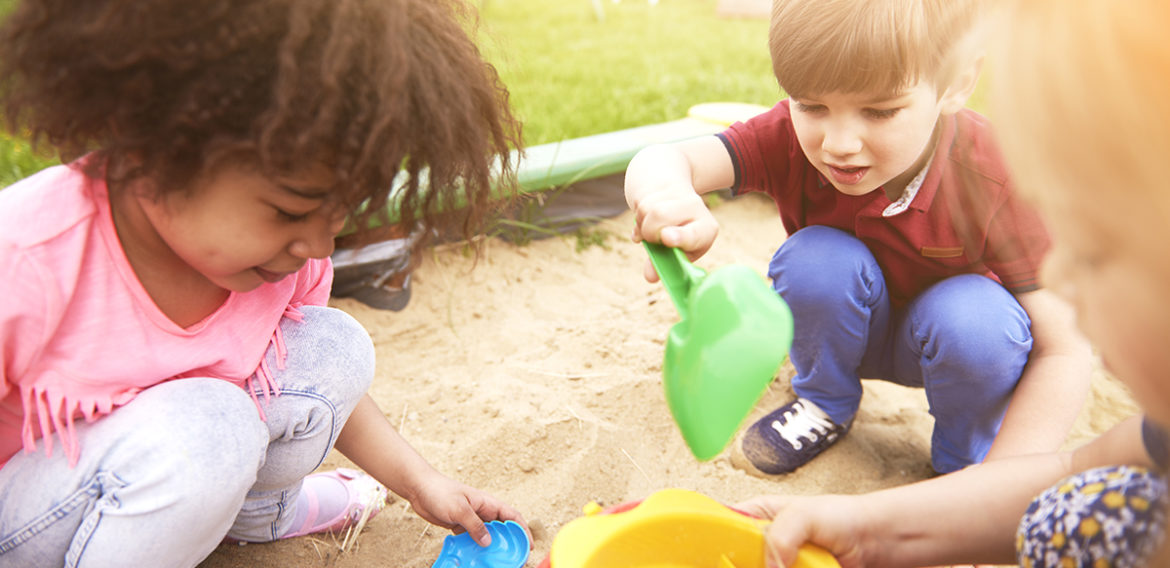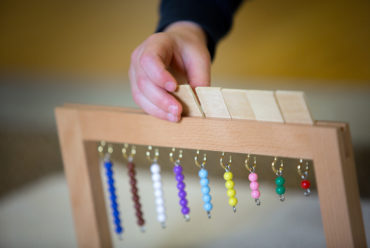3 Ways to Raise Independent Children
If you are a devotee of the Montessori method, you know from first hand experience that the goal is to raise independent children, who find and follow their own passions in a directed way.
Such a philosophy is taking on even more importance in today’s culture. Consider, for example, that an annual survey of over 150,000 college freshmen has reported the highest levels of depression and the lowest levels of emotional well-being in the 50 years that it has been administered.
In “Raising Can-Do Kids: Giving Children the Tools to Thrive in a Fast-Changing World,” we lay out the argument that today’s kids need to be prepared for an uncertain future, where many of the jobs that they’ll hold have not been created yet (or for that matter even imagined). We suggest kids need to learn how to navigate their own unique pathways to defining and chasing their conceptions of success, and independently carve out who they are and how they make it in the world on their own terms – something that almost every kid will need to do in the coming decades.
To this end, we leaned heavily on an authoritative review of both classic and current research to offer suggestions for evidence-based practices to raise an independent child. Here are 3 key principles:
1 – Facilitate Exploration
If you believe in the Montessori approach, you know the benefits of letting children explore in a self-directed way that prioritizes multi-sensory exploration. We argue that, beginning at birth, babies are wired for exploring their world in a sensory-driven way, and that instinct is often short-circuited by increasing intrusions of structure in children’s daily lives. A child’s experience at home should include lots of opportunities for hands-on exploration. Concrete activities include free play, and the freedom to choose and investigate at will. In addition, many studies have shown that even toddlers can demonstrate sophisticated cognitive processes such as trial and error, and divergent thinking (comparable to thinking outside the box). Parents can offer open-ended, non-prescriptive activities (building blocks work great; so do crayons and Play-Doh) and offer support for kids testing out their own ideas and figuring out what works and what doesn’t work. An especially important idea is to model and encourage “trial and trial” rather than “trial and error” – the only “error” that happens during the creative process is not learning from the experience.
2 – Practice Optimism
Realistic optimism – the belief that we can do something to make a bad situation better – is the rocket fuel of the independent spirit that propels them to keep pushing themselves toward successes even when things aren’t going their way. They are good at being calculated risk takers who weigh out pros and cons and can be resilient because they learn how to absorb bumps and bruises and push themselves forward. Being an optimistic parent will help your child see the utility of getting in the habit of analyzing roadblocks and setbacks in order to identify the next small steps to improve (which stands in contrast to both overt pessimism as well as unrealistic optimism which relies on magical thinking). Helping children analyze challenges – whether it’s learning to tie their shoes, swim, or get through a tough math class – in order to define realistic next steps to improve, powered by the belief that they can make this happen, is the stuff of success. It will also give them the confidence to try new things – whether it’s trying out for the school play, integrating with a new group of kids, or learning to play basketball – because they will get that while they won’t be great at first, they will be able to handle that and focus on the little ways they can get better, which will of course snowball over time.
3 – Cultivate Social Skills
Independent people are successful in part because they know how to work with others. Research has shown that good social skills in childhood are predictive of personal and professional success decades later. An independent child learns how to handle their own conflicts (parents can model exchanges of ideas and attempts to reach consensus rather than harping on one’s one perspective), engage in conversations (parents who talk a lot to their kids at any age will help those kids build their vocabularies and abilities to express themselves and understand others), and collaborate with a range of personalities (parents can guide kids on how to work with others to solve problems or take on projects). The fact remains that knowing how to play well in the sandbox is a predictor of later success, and giving kids ample opportunities to interact with each other, learn from their exchanges, and receive well founded adult suggestions when warranted, will develop all those skills.
While these principles are not exclusive to the Montessori approach, it is notable that there is extraordinary convergence. It may be fruitful for the Montessori devotee to dig into this work to see how much developmental research is supportive of the foundations offered by a Montessori education.










No Comments